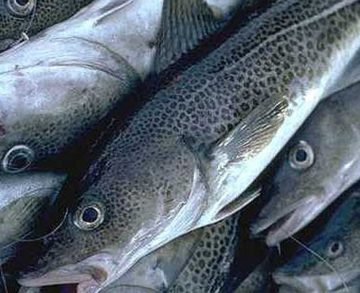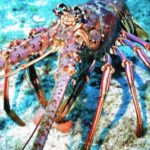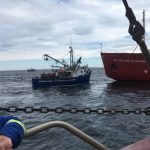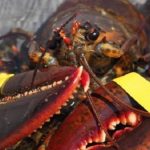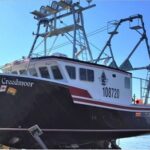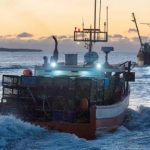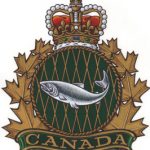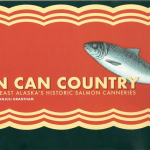Category Archives: Pacific
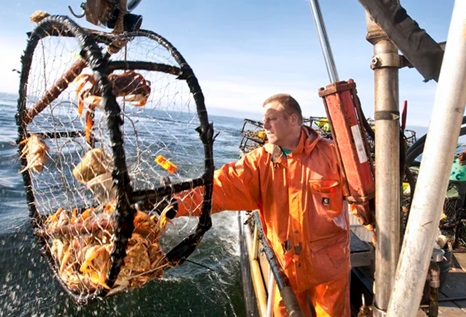
What makes Dungeness Crab Unique
Named after the town of Dungeness, Washington where people first began fishing for these crustaceans in the 1800s, Dungeness crab meat is prized by chefs and seafood connoisseurs alike for its subtle sweetness, and flaky, delicate texture. It’s easy to get lost in the moment when you’re biting into a chunk of delectable Dungeness crab meat. Still, it’s worth pausing to express gratitude toward the crab fishermen (and women) who caught that meal for you. This article covers a lot about these crabs, and you’ll know about a wide variety of crab from Dungeness to King Crab. Dungeness vs. Snow Crab, vs. Stone Crab, Photos, and more, >>click to read<< 16:50
‘Catalytic.’ How a bipartisan bill could save working waterfronts from Cape Cod to Alaska
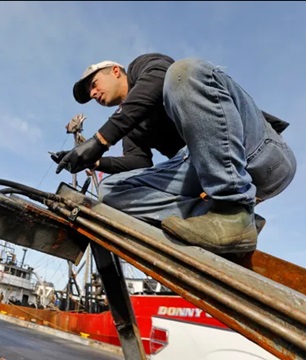
Andrew Spalt climbs the side of the new hydraulic dredge ramp he is installing aboard his boat Miss Emma.
The Working Waterfront Protection Act (S-3180) would establish a grant program that would support working waterfronts in coastal states, including the Great Lakes. The act would provide $20 million annually through fiscal 2028. Commercial fishing cooperatives, working waterfront owners and operators, nonprofit organizations and municipal and state governments would be eligible to apply. Fishing Communities Coalition Coordinator Noah Oppenheim said support is crucial because of pressures facing working waterfront owners and fishing communities nationwide. The coalition represents more than 1,000 independent small boat fishermen and business owners from Maine to Alaska, according to its website. 8 photos, more, >>click to read<< 09:38
Blue power: Will ocean waves be California’s new source of clean energy?
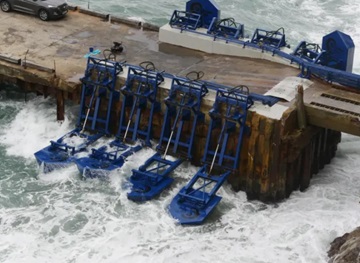 The world’s oceans may be vast, but they are getting crowded. Coastal areas are congested with cargo ships, international commercial fishing fleets, naval vessels, oil rigs and, soon, floating platforms for deep-sea mining. But the Pacific Ocean is going to get even busier: Nearly 600 square miles of ocean off California have been leased for floating wind farms, with more expected. Now the state is considering hosting another renewable energy technology in the sea: Blue power, electricity created from waves and tides. A new law signed by Gov. Gavin Newsom in October instructs state agencies to study the feasibility and impacts of capturing ocean movement to create power and report back to the Legislature by January 2025. more , >>click to read<<07:20
The world’s oceans may be vast, but they are getting crowded. Coastal areas are congested with cargo ships, international commercial fishing fleets, naval vessels, oil rigs and, soon, floating platforms for deep-sea mining. But the Pacific Ocean is going to get even busier: Nearly 600 square miles of ocean off California have been leased for floating wind farms, with more expected. Now the state is considering hosting another renewable energy technology in the sea: Blue power, electricity created from waves and tides. A new law signed by Gov. Gavin Newsom in October instructs state agencies to study the feasibility and impacts of capturing ocean movement to create power and report back to the Legislature by January 2025. more , >>click to read<<07:20
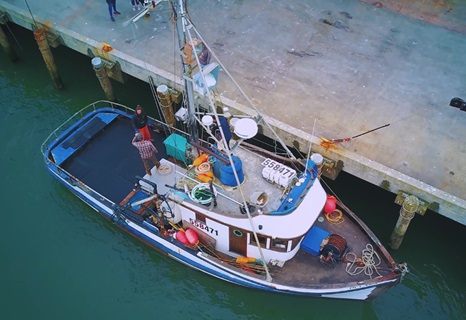
Reopening Areas for Groundfish Fishing After 20 Years
NOAA Fisheries has published regulation changes that will open fishing areas that have been closed for over 20 years. These areas were originally closed in the early 2000s to protect several species of overfished rockfish. With the rebuilt status of almost all these groundfish species, these closures can slowly be opened and allow fishermen greater access to catch healthy fish stocks. The regulations will also close some small areas to protect groundfish habitat, yelloweye rockfish (a species that is still rebuilding), and sensitive areas with abundant coral. These regulation changes are effective on January 1, 2024. Groundfish on the West Coast encompass over 90 species sharing one important trait: at some point in their life, they live on or near the ocean floor. Groundfish are a crucial part of West Coast underwater environments. They act as both predator and prey to different species and help maintain balance in underwater food chains. photos, charts, info, >>click to read<< 11:10
Marine Science Vessel Celtic Voyager Sets Sail to Canada
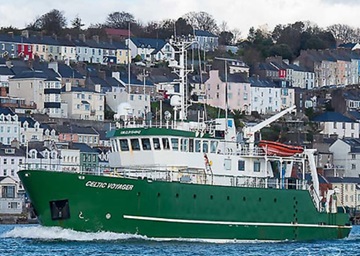 The Marine Institute’s Celtic Voyager, Ireland’s first multi-purpose research vessel, has been sold to Qikiqtaaluk Corporation of Nunavut, Canada. The vessel has played a significant role in advancing marine science and monitoring for the Irish government during its 25-year service life and has completed more than 600 surveys, enabled more than 6,500 science days, and sailed more than 550,000 miles while in service with the Marine Institute. The vessel will continue to be used for fisheries research and seabed mapping in Northern territories and Nunavut in Canada. Qikiqtaaluk Corporation is the Inuit birthright development corporation for the Qikiqtani Region and seeks to strengthen the social and economic well-being of Nunavut and the 15,000+ Inuit it represents. more, >>click to read<< 08:43
The Marine Institute’s Celtic Voyager, Ireland’s first multi-purpose research vessel, has been sold to Qikiqtaaluk Corporation of Nunavut, Canada. The vessel has played a significant role in advancing marine science and monitoring for the Irish government during its 25-year service life and has completed more than 600 surveys, enabled more than 6,500 science days, and sailed more than 550,000 miles while in service with the Marine Institute. The vessel will continue to be used for fisheries research and seabed mapping in Northern territories and Nunavut in Canada. Qikiqtaaluk Corporation is the Inuit birthright development corporation for the Qikiqtani Region and seeks to strengthen the social and economic well-being of Nunavut and the 15,000+ Inuit it represents. more, >>click to read<< 08:43
Equinor Names California Floating Wind Project
 Equinor has announced the name of its floating offshore wind project off the coast of California, Atlas Wind. The lease area, which lies 60 miles from Morro Bay, has the capacity to provide over 2GW of reliable, renewable power, enough to power 1.7 million California homes once complete. California is poised to become a growing force in the US energy transition with a nation-leading target of 25GW of offshore wind energy by 2045. Approximately two-thirds of the United States’ offshore wind energy potential lies in deep coastal waters, like the Pacific Ocean, where water depths reach 1,000 meters (3,280 feet) or more. more, >>click to read<< 11:36
Equinor has announced the name of its floating offshore wind project off the coast of California, Atlas Wind. The lease area, which lies 60 miles from Morro Bay, has the capacity to provide over 2GW of reliable, renewable power, enough to power 1.7 million California homes once complete. California is poised to become a growing force in the US energy transition with a nation-leading target of 25GW of offshore wind energy by 2045. Approximately two-thirds of the United States’ offshore wind energy potential lies in deep coastal waters, like the Pacific Ocean, where water depths reach 1,000 meters (3,280 feet) or more. more, >>click to read<< 11:36
Bluefin Tuna Get Busy Off North Carolina – Inside the $40 billion tuna industry
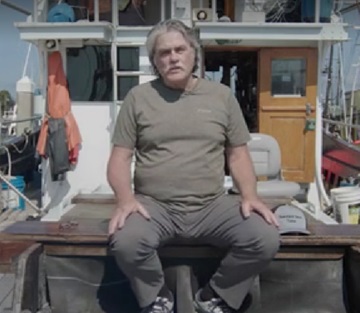 In November 1981, a fleet of briefcase-toting lobbyists, scientists and political negotiators gathered in sunny Tenerife, Spain, to decide the fate of Atlantic bluefin tuna. During the meeting in Tenerife, the American delegation to the International Commission for the Conservation of Atlantic Tunas proposed a disarmingly simple solution: they would draw a line down the middle of the Atlantic Ocean and split the bluefin into two separate stocks. The proposal passed and, eventually, for a variety of reasons, Atlantic bluefin tuna did bounce back. – Inside the $40 billion tuna industry – Once a staple in American homes, canned tuna consumption dropped 45.7% between 2000 and 2021. That is mainly due to changing consumer preferences, sustainability concerns, market consolidation and a major price-fixing scandal between Bumble Bee and StarKist that lasted nearly a decade. Despite this, in 2020, the U.S. remained the top importer. The industry, largely controlled by conglomerates such as Thai Union Group, saw a pandemic-driven demand spike in 2020, but that has since declined. Video, >>click to read<< 16:20
In November 1981, a fleet of briefcase-toting lobbyists, scientists and political negotiators gathered in sunny Tenerife, Spain, to decide the fate of Atlantic bluefin tuna. During the meeting in Tenerife, the American delegation to the International Commission for the Conservation of Atlantic Tunas proposed a disarmingly simple solution: they would draw a line down the middle of the Atlantic Ocean and split the bluefin into two separate stocks. The proposal passed and, eventually, for a variety of reasons, Atlantic bluefin tuna did bounce back. – Inside the $40 billion tuna industry – Once a staple in American homes, canned tuna consumption dropped 45.7% between 2000 and 2021. That is mainly due to changing consumer preferences, sustainability concerns, market consolidation and a major price-fixing scandal between Bumble Bee and StarKist that lasted nearly a decade. Despite this, in 2020, the U.S. remained the top importer. The industry, largely controlled by conglomerates such as Thai Union Group, saw a pandemic-driven demand spike in 2020, but that has since declined. Video, >>click to read<< 16:20
Non-profit helps scores of commercial fishermen with free fishing licenses
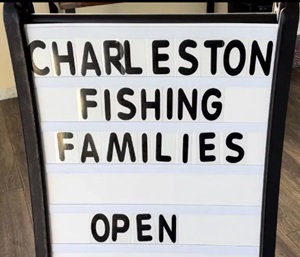 It’s not uncommon for a delayed start to Dungeness crab season along Oregon, in fact, many fishermen try to plan ahead for it. This year is the second in a row for commercial crabbers with the start on December 16 rather than December 1 due to low meat yields. Even with some fishermen able to secure other work, there remain those who need help making ends meet as they await the season open. Non-profit Charleston Fishing Families formed in 2016 with one of their goals being to help those fishermen. “During this time, money’s already tight. It’s holiday season. Often there’s a delay in the season, and so this was one way where we could directly help and impact the fishermen and just offset a little bit of costs. It may not be a lot, but it does help,” said Jackie Chambers, president of CFF. “This year, we had a record number of 73 in the span of five hours.” >>click to read<< 17:05
It’s not uncommon for a delayed start to Dungeness crab season along Oregon, in fact, many fishermen try to plan ahead for it. This year is the second in a row for commercial crabbers with the start on December 16 rather than December 1 due to low meat yields. Even with some fishermen able to secure other work, there remain those who need help making ends meet as they await the season open. Non-profit Charleston Fishing Families formed in 2016 with one of their goals being to help those fishermen. “During this time, money’s already tight. It’s holiday season. Often there’s a delay in the season, and so this was one way where we could directly help and impact the fishermen and just offset a little bit of costs. It may not be a lot, but it does help,” said Jackie Chambers, president of CFF. “This year, we had a record number of 73 in the span of five hours.” >>click to read<< 17:05
Commercial Dungeness crab season delayed
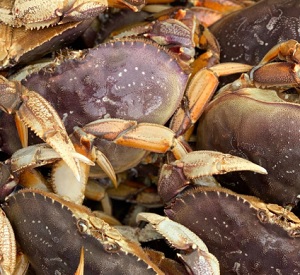 Pre-season testing shows Dungeness crabs are too low in meat yield in some ocean areas, delaying Oregon’s commercial season until at least Dec. 16. Targeted to open Dec. 1, Oregon’s ocean commercial Dungeness crab season can be delayed so consumers get a high-quality product, and crabs are not wasted. The next round of crab meat yield and biotoxin testing will occur in the coming weeks. Results help determine if the season opens Dec. 16 or is further delayed or split into areas with different opening dates. Oregon, California and Washington coordinate Dungeness crab quality testing and the commercial season opening dates. >>click to read<< 14:30
Pre-season testing shows Dungeness crabs are too low in meat yield in some ocean areas, delaying Oregon’s commercial season until at least Dec. 16. Targeted to open Dec. 1, Oregon’s ocean commercial Dungeness crab season can be delayed so consumers get a high-quality product, and crabs are not wasted. The next round of crab meat yield and biotoxin testing will occur in the coming weeks. Results help determine if the season opens Dec. 16 or is further delayed or split into areas with different opening dates. Oregon, California and Washington coordinate Dungeness crab quality testing and the commercial season opening dates. >>click to read<< 14:30
Canned seafood moves beyond tuna sandwiches in pandemic trend that stuck
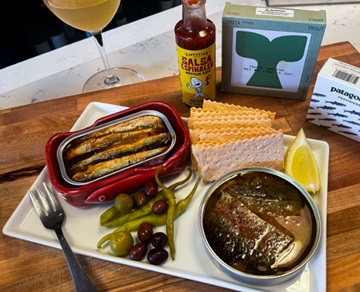 Sardines swirling in preserved lemons. Mackerel basking in curry sauce. Chargrilled squid bathing in ink. All are culinary delicacies long popular in Europe that are now making their mark on U.S. menus. The country’s canned seafood industry is moving well beyond tuna sandwiches, a pandemic-era trend that began with Americans in lockdown demanding more of their cupboard staples. Tinned fish, as it’s called in Europe, is now a regular offering on menus at wine bars from San Francisco to Houston to New York, where patrons scoop the contents straight out of the can. There are even tinned fish clubs that mimic wine clubs by sending members monthly shipments of various seafood packed in various combinations of spices, oils and sauces. >>click to read<< 09:01
Sardines swirling in preserved lemons. Mackerel basking in curry sauce. Chargrilled squid bathing in ink. All are culinary delicacies long popular in Europe that are now making their mark on U.S. menus. The country’s canned seafood industry is moving well beyond tuna sandwiches, a pandemic-era trend that began with Americans in lockdown demanding more of their cupboard staples. Tinned fish, as it’s called in Europe, is now a regular offering on menus at wine bars from San Francisco to Houston to New York, where patrons scoop the contents straight out of the can. There are even tinned fish clubs that mimic wine clubs by sending members monthly shipments of various seafood packed in various combinations of spices, oils and sauces. >>click to read<< 09:01
‘People helping people’
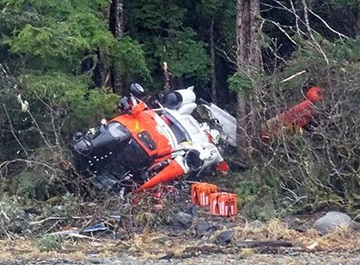 Some folks in Alaska are going to be very thankful on Thanksgiving. The Lydia Marie, a 44-foot wooden troller, with its captain, Logan Padgett, and his brother aboard, began taking on water on Nov. 13 while in rough waters in Frederick Sound, KCAW.org reported. Padgett sent out a mayday to U.S. Coast Guard Air Station Sitka and headed for calmer waters off Read Island in Farragut Bay. The flooding got under control, but the helicopter was already on the way. “Well, it was dark,” Padgett said. “So we were just looking at the helicopter lights, and there wasn’t really much to see. But we could hear the rotors one second, and then (a) loud crash the next. Then silence.” >>click to read<< 06:53
Some folks in Alaska are going to be very thankful on Thanksgiving. The Lydia Marie, a 44-foot wooden troller, with its captain, Logan Padgett, and his brother aboard, began taking on water on Nov. 13 while in rough waters in Frederick Sound, KCAW.org reported. Padgett sent out a mayday to U.S. Coast Guard Air Station Sitka and headed for calmer waters off Read Island in Farragut Bay. The flooding got under control, but the helicopter was already on the way. “Well, it was dark,” Padgett said. “So we were just looking at the helicopter lights, and there wasn’t really much to see. But we could hear the rotors one second, and then (a) loud crash the next. Then silence.” >>click to read<< 06:53
Dungeness Crab Season Delayed Again, This Time Until Mid-December
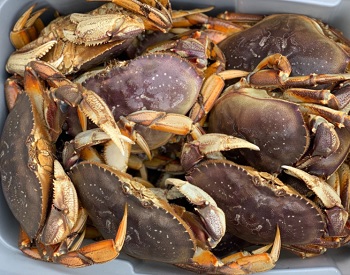 The Commercial Dungeness crab fishing season has been delayed again, this time due partly to poor meat quality found in samples, and due to humpback whales still migrating south. While hopes for Thanksgiving crab were already dashed a few weeks ago with the initial delay, a second delay in California’s commercial Dungeness crab fishing season has been called by the state fish and wildlife authorities. In a Friday announcement, the California Department of Fish and Wildlife said that they would reevaluate the fishery on December 7 for a potential opening of the commercial season on December 16. >>click to read<< 12:07
The Commercial Dungeness crab fishing season has been delayed again, this time due partly to poor meat quality found in samples, and due to humpback whales still migrating south. While hopes for Thanksgiving crab were already dashed a few weeks ago with the initial delay, a second delay in California’s commercial Dungeness crab fishing season has been called by the state fish and wildlife authorities. In a Friday announcement, the California Department of Fish and Wildlife said that they would reevaluate the fishery on December 7 for a potential opening of the commercial season on December 16. >>click to read<< 12:07
Crisis Hotline: New option for farmers, ranchers, loggers and fishermen in Oregon
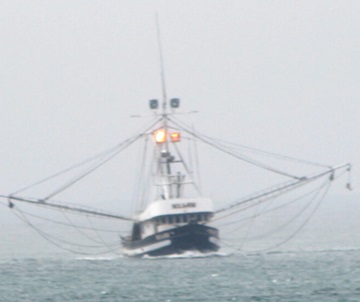 A new hotline, the Agristress Helpline, launched in Oregon in September. It is tailored to support those who work in agriculture, forestry or the fishing industry through a phone and text service that operates 24 hours a day, seven days a week. The helpline is free and has trained counselors with experience in those industries who can take phone calls in 160 languages, with English, Spanish and Vietnamese professionals available to respond by text. Experts say the line is sorely needed. Although the 988 crisis line provides a similar service, the Agristress line is specialized to address the needs of farmers, ranchers, loggers and fishermen. They often work in social and geographic isolation and in areas with limited access to health care services. These professions also have to grapple with extreme weather conditions, such as flash flooding or drought, and they face fluctuating commodity prices. >>click to read<< 18:06
A new hotline, the Agristress Helpline, launched in Oregon in September. It is tailored to support those who work in agriculture, forestry or the fishing industry through a phone and text service that operates 24 hours a day, seven days a week. The helpline is free and has trained counselors with experience in those industries who can take phone calls in 160 languages, with English, Spanish and Vietnamese professionals available to respond by text. Experts say the line is sorely needed. Although the 988 crisis line provides a similar service, the Agristress line is specialized to address the needs of farmers, ranchers, loggers and fishermen. They often work in social and geographic isolation and in areas with limited access to health care services. These professions also have to grapple with extreme weather conditions, such as flash flooding or drought, and they face fluctuating commodity prices. >>click to read<< 18:06
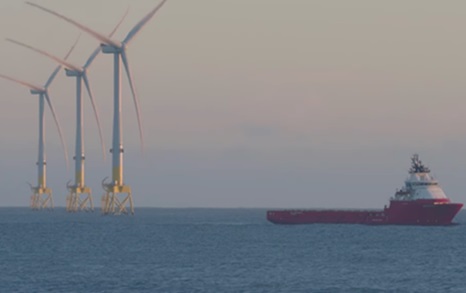
Ringside View: Offshore Wind is a Financial and Environmental Catastrophe
It’s about time Californians of all ideological persuasions wake up and stop what is possibly the most economically wasteful and environmentally destructive project in American history: the utility scale adoption of offshore wind energy. The California Legislature intends to despoil our coastline and coastal waters with floating wind turbines, 20+ miles offshore, tethered to the sea floor 4,000 feet beneath the waves. Along with tethering cables, high voltage wires will descend from each of these noisy, 1,000 foot tall leviathans, but we’re to assume none of this will disrupt the migrations of our treasured Cetaceans and other marine and avian life, not the electric fields emanating from hundreds (thousands?) of 20+ mile long live power lines laid onto the ocean floor, nor from the construction, the maintenance, or the new ports, ships, and submersibles. >>click to reafd<< 10:57
Salmon fall run in Mokelumne River sets 80-year record
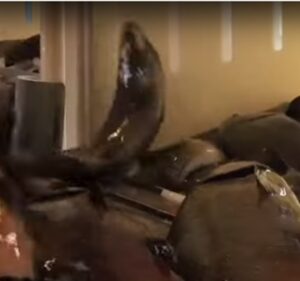 More fall-run Chinook salmon are returning to spawn in the Mokelumne River this year than in any year since 1940, when wildlife officials first began tracking the population, according to the East Bay Municipal Utility District. EBMUD officials announced Thursday that more than 20,000 fish have so far returned to the river to complete their life cycle. “This year’s historic return highlights EBMUD’s longstanding collaboration in the region and our deep commitment to sustaining this vital fish hatchery and protecting the river’s habitat,” said EBMUD board president Andy Katz. Video, >>click to read<< 09:36
More fall-run Chinook salmon are returning to spawn in the Mokelumne River this year than in any year since 1940, when wildlife officials first began tracking the population, according to the East Bay Municipal Utility District. EBMUD officials announced Thursday that more than 20,000 fish have so far returned to the river to complete their life cycle. “This year’s historic return highlights EBMUD’s longstanding collaboration in the region and our deep commitment to sustaining this vital fish hatchery and protecting the river’s habitat,” said EBMUD board president Andy Katz. Video, >>click to read<< 09:36
Oregon: Delayed Commercial Dungeness crab season
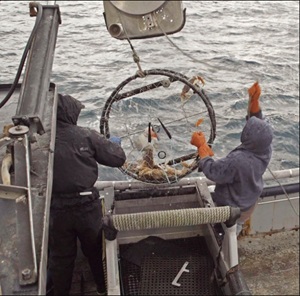 Pre-season testing shows Dungeness crabs are too low in meat yield in some ocean areas, delaying Oregon’s commercial season until at least Dec. 16, according to the Oregon Department of Fish and Wildlife (ODFW). Targeted to open Dec. 1, Oregon’s ocean commercial Dungeness crab season can be delayed so consumers get a high-quality product and crabs are not wasted. The commercial bay crab fishery (currently open) closes at 12:01 a.m. Dec. 1 in conjunction with the delayed ocean commercial season. It will reopen when the ocean commercial season does so. The next round of crab meat yield and biotoxin testing will occur in the coming weeks. Results help determine if the season opens Dec. 16 or is further delayed or split into areas with different opening dates. >>click to read<< 21:38
Pre-season testing shows Dungeness crabs are too low in meat yield in some ocean areas, delaying Oregon’s commercial season until at least Dec. 16, according to the Oregon Department of Fish and Wildlife (ODFW). Targeted to open Dec. 1, Oregon’s ocean commercial Dungeness crab season can be delayed so consumers get a high-quality product and crabs are not wasted. The commercial bay crab fishery (currently open) closes at 12:01 a.m. Dec. 1 in conjunction with the delayed ocean commercial season. It will reopen when the ocean commercial season does so. The next round of crab meat yield and biotoxin testing will occur in the coming weeks. Results help determine if the season opens Dec. 16 or is further delayed or split into areas with different opening dates. >>click to read<< 21:38
Commercial Dungeness crab season delayed by California Fish and Wildlife
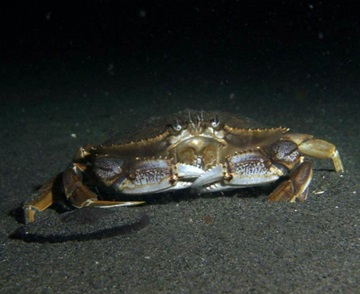 The California Department of Fish and Wildlife on Friday delayed the opening of the commercial Dungeness crab season, citing the need to protect humpback whales and other ocean life from entanglement. The delay — which will remain in effect until further notice — affects the taking and possession of commercially-caught Dungeness crab for 200 nautical miles extending from the California coastline. Additionally, a fleet advisory is in effect for recreational Dungeness crab, reminding fisheries to maintain best practices. The next risk assessment is scheduled for around Dec. 7. Friday’s decision falls on the heels of a late October call by the department to restrict recreational and commercial crab fishing in the state. >>click to read<< 09:01
The California Department of Fish and Wildlife on Friday delayed the opening of the commercial Dungeness crab season, citing the need to protect humpback whales and other ocean life from entanglement. The delay — which will remain in effect until further notice — affects the taking and possession of commercially-caught Dungeness crab for 200 nautical miles extending from the California coastline. Additionally, a fleet advisory is in effect for recreational Dungeness crab, reminding fisheries to maintain best practices. The next risk assessment is scheduled for around Dec. 7. Friday’s decision falls on the heels of a late October call by the department to restrict recreational and commercial crab fishing in the state. >>click to read<< 09:01
Fish and Game Commission Suspends and Terminates Fishing Privileges for Two Southern California Commercial Lobster Fishermen
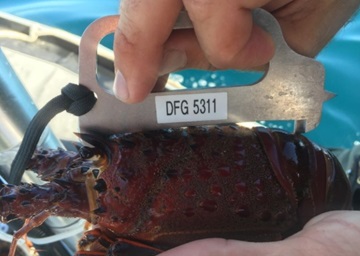 During its Oct. 12 meeting, the California Fish and Game Commission adopted recommendations from the California Department of Fish and Wildlife (CDFW) to revoke the commercial fishing licenses of two Southern California commercial fishermen, Michael Volaski and Arthur Esparza. CDFW recommended a five-year suspension of Volaski’s lobster operator permit and commercial fishing license. Volaski is a commercial lobster fisherman from Oxnard. The revocation stems from a three-day hearing in front of an administrative law judge who listened to testimony from Volaski and CDFW regarding Volaski’s history of violations in the lobster fishery. >>click to read<< 09:53
During its Oct. 12 meeting, the California Fish and Game Commission adopted recommendations from the California Department of Fish and Wildlife (CDFW) to revoke the commercial fishing licenses of two Southern California commercial fishermen, Michael Volaski and Arthur Esparza. CDFW recommended a five-year suspension of Volaski’s lobster operator permit and commercial fishing license. Volaski is a commercial lobster fisherman from Oxnard. The revocation stems from a three-day hearing in front of an administrative law judge who listened to testimony from Volaski and CDFW regarding Volaski’s history of violations in the lobster fishery. >>click to read<< 09:53
Laurieton community rallies to save sunken historic fishing vessel Pacific Venture
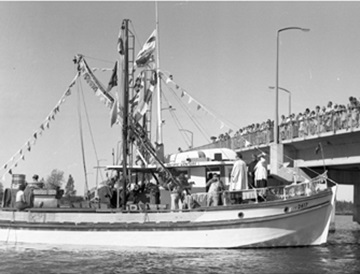 A community is rallying to save a piece of maritime history in northern New South Wales, with efforts underway to save a 60-year-old fishing trawler from a watery grave in a local river. The sunken Pacific Venture is the last surviving vessel from a fishing fleet built in Laurieton in 1963. Earlier this year it was entrusted to the community, with plans to bring it back to its former glory and put it on display. But the restoration work was yet to begin when a storm tore through the region in late October, and the old boat sank in the Camden Haven River at Laurieton. Former owner Damien Lay said the task was proving challenging but many in the community were still determined to save the old boat. Vide, photos, >>click to read<< 15:58
A community is rallying to save a piece of maritime history in northern New South Wales, with efforts underway to save a 60-year-old fishing trawler from a watery grave in a local river. The sunken Pacific Venture is the last surviving vessel from a fishing fleet built in Laurieton in 1963. Earlier this year it was entrusted to the community, with plans to bring it back to its former glory and put it on display. But the restoration work was yet to begin when a storm tore through the region in late October, and the old boat sank in the Camden Haven River at Laurieton. Former owner Damien Lay said the task was proving challenging but many in the community were still determined to save the old boat. Vide, photos, >>click to read<< 15:58
Kongsberg Discovery Partners with Arctic Storm for Advanced US-built Trawler-processor
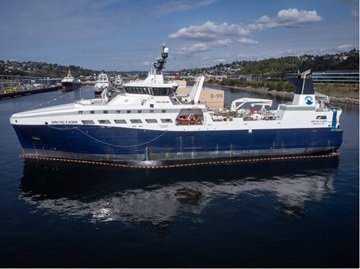 The first US-built trawler-processor for Alaskan pollock in over three decades is now undergoing sea trials in the Northern Pacific, testing an integrated technology package from Kongsberg Discovery tailored to locate, inspect, and engage fish with unparalleled efficiency. The 100-meter-long Arctic Fjord, designed by Kongsberg Maritime and built by Louisiana’s Thoma-Sea Marine Constructor, will start full-time operations for 2024’s pollock A season in the Bering Sea. “The Arctic Fjord sets a new benchmark for the Alaskan pollock fleet,” Woodruff comments. “From its fuel-efficient design to the outstanding crew accommodation and state-of-the-art onboard processing facilities, every element has been cherry picked to not just do the job, but to do it to the highest possible standards. >>click to read<< 09:50
The first US-built trawler-processor for Alaskan pollock in over three decades is now undergoing sea trials in the Northern Pacific, testing an integrated technology package from Kongsberg Discovery tailored to locate, inspect, and engage fish with unparalleled efficiency. The 100-meter-long Arctic Fjord, designed by Kongsberg Maritime and built by Louisiana’s Thoma-Sea Marine Constructor, will start full-time operations for 2024’s pollock A season in the Bering Sea. “The Arctic Fjord sets a new benchmark for the Alaskan pollock fleet,” Woodruff comments. “From its fuel-efficient design to the outstanding crew accommodation and state-of-the-art onboard processing facilities, every element has been cherry picked to not just do the job, but to do it to the highest possible standards. >>click to read<< 09:50
Man sues business partner over fishing boat
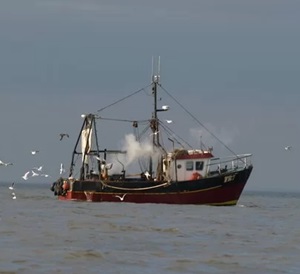 A man has sued a business partner over the purchase of a shrimp trawler. Abraham Nguyen filed his complaint October 30 in federal court against F/V Kim Thu and TNL Fishery. In the lawsuit, Nguyen says Loi Hang “wanted to purchase a shrimp trawler in Louisiana and wanted Nguyen to convert it into a long-line tuna boat capable of operating off the coast of Hawaii.” Hang is one of two owners of Hawaii-based TNL Fishery along with Cindy Nguyen, who is not related to the plaintiff. Nguyen, who is a welder, previously had converted another shrimp trawler for Hang, the suit states. >>click to read<< 10:37
A man has sued a business partner over the purchase of a shrimp trawler. Abraham Nguyen filed his complaint October 30 in federal court against F/V Kim Thu and TNL Fishery. In the lawsuit, Nguyen says Loi Hang “wanted to purchase a shrimp trawler in Louisiana and wanted Nguyen to convert it into a long-line tuna boat capable of operating off the coast of Hawaii.” Hang is one of two owners of Hawaii-based TNL Fishery along with Cindy Nguyen, who is not related to the plaintiff. Nguyen, who is a welder, previously had converted another shrimp trawler for Hang, the suit states. >>click to read<< 10:37
Lawmakers form Seafood Caucus to help Louisiana fishermen
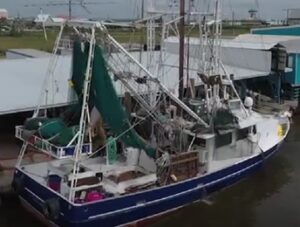 Consumers likely don’t think twice about where the shrimp or seafood bought at grocery store comes from, but Louisiana fisherman—and now federal lawmakers—are asking people to pay attention. “We’re losing an industry and a culture and a way of life in Louisiana and across the country,” said Acy Cooper, who comes from a long line of shrimpers. He says what was once a reliable profession has now become heartache. It’s not just a problem in Louisiana—which is why lawmakers from all four of the country’s coasts are joining together to find a solution. Video, >>click to read<< 10:28
Consumers likely don’t think twice about where the shrimp or seafood bought at grocery store comes from, but Louisiana fisherman—and now federal lawmakers—are asking people to pay attention. “We’re losing an industry and a culture and a way of life in Louisiana and across the country,” said Acy Cooper, who comes from a long line of shrimpers. He says what was once a reliable profession has now become heartache. It’s not just a problem in Louisiana—which is why lawmakers from all four of the country’s coasts are joining together to find a solution. Video, >>click to read<< 10:28
Tragedy at Sea: Celebrated Fisherman Travis Myer Loses his Livelihood
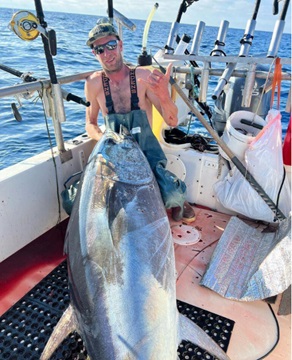 Ask any restaurateur along the coast from here to San Francisco who Travis Meyer is, and they’ll likely tell you he’s the halibut whisperer. He supplies restaurants from Isla and Crudo e Nudo in Santa Monica to Laquita in Santa Barbara, Industrial Eats in Buellton, Mattei’s Tavern in Los Olivos, Full of Life Flatbread in Los Alamos and several in Paso Robles. His halibut, sea bass, and bluefin tuna are the stuff of legend in an increasingly competitive world of commercial fishing. “Travis has connected us directly to the pristine marine life that surrounds the Channel Islands,” Jason Paluska, when we first met, he delivered a beautiful California halibut that was dispatched using the ike jime method. It was hands down the freshest and cleanest bite of raw fish that I had ever tasted.” That all changed about a week ago on a midnight run to Hollister Ranch, when Meyer lost his boat, his livelihood and nearly his life. Here, the seasoned fisherman tells the tale in his own words: >>click to read<< 11:31
Ask any restaurateur along the coast from here to San Francisco who Travis Meyer is, and they’ll likely tell you he’s the halibut whisperer. He supplies restaurants from Isla and Crudo e Nudo in Santa Monica to Laquita in Santa Barbara, Industrial Eats in Buellton, Mattei’s Tavern in Los Olivos, Full of Life Flatbread in Los Alamos and several in Paso Robles. His halibut, sea bass, and bluefin tuna are the stuff of legend in an increasingly competitive world of commercial fishing. “Travis has connected us directly to the pristine marine life that surrounds the Channel Islands,” Jason Paluska, when we first met, he delivered a beautiful California halibut that was dispatched using the ike jime method. It was hands down the freshest and cleanest bite of raw fish that I had ever tasted.” That all changed about a week ago on a midnight run to Hollister Ranch, when Meyer lost his boat, his livelihood and nearly his life. Here, the seasoned fisherman tells the tale in his own words: >>click to read<< 11:31
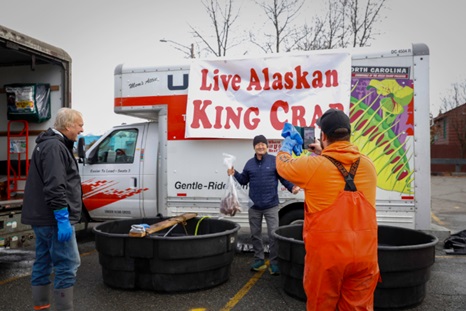
Alaska crabbers get creative with pop-up sales, but industry’s fate uncertain
With Alaska’s Bering Sea snow crab fishery shut down for the second year in a row, crabbers are having to make tough decisions and find creative ways to earn income, like selling direct to Anchorage consumers, sometimes in parking lots. A hand-painted sign on an Anchorage street corner and a hanging sign with the words “Live Alaskan King Crab” were enough to draw in customers to a Spenard parking lot that had become home to one of the shellfish pop-up sales. The live crab sale was in its fourth day on Nov. 2 and had already sold more than three-quarters of the 700 red king crabs hauled out from the Bering Sea. In an attempt to make up some lost income, third-generation fisherman Gabriel Prout brought red king crab to Anchorage to sell directly to consumers. Photos, >>click to read<< 09:16
Fish to Families: San Diego fishermen and chefs team up to fight hunger
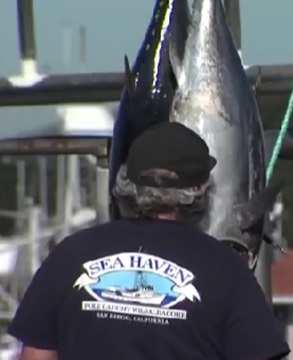 An innovative program called “Fish to Families” has local fishermen and chefs teaming up to help San Diegans struggling with hunger. The San Diego Fishermen’s Working Group originally spearheaded the program in 2020 to help both the community and the fishermen since the restaurants were shut down. “We were able to work, and they were able to put a high-quality meal for somebody less fortunate, and it blossomed from there,” Arthur Lorton, owner and operator of the “Sea Haven” fishing boat, said. The program was recently restarted, thanks to a grant from The Parker Foundation, to help the growing number of people in need. Video, >>click to read<< 09:26
An innovative program called “Fish to Families” has local fishermen and chefs teaming up to help San Diegans struggling with hunger. The San Diego Fishermen’s Working Group originally spearheaded the program in 2020 to help both the community and the fishermen since the restaurants were shut down. “We were able to work, and they were able to put a high-quality meal for somebody less fortunate, and it blossomed from there,” Arthur Lorton, owner and operator of the “Sea Haven” fishing boat, said. The program was recently restarted, thanks to a grant from The Parker Foundation, to help the growing number of people in need. Video, >>click to read<< 09:26
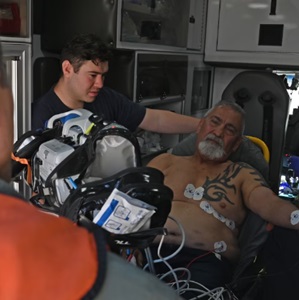
US Coast Guard Medevacs 64-Year-Old from Fishing Vessel Off San Diego
A Coast Guard Sector San Diego helicopter crew rescued a 64-year-old male passenger from a fishing vessel approximately 40 miles off the coast of San Diego Thursday. Coast Guard Sector San Diego Joint Harbor Operations Center watchstanders received a distress call from the fishing vessel Pride, requesting a medical evacuation for a crewmember at approximately 9 a.m. The injured male was experiencing multiple onset abnormalities. >>click to read<< 07:23
California commercial Dungeness crab fishing season delayed
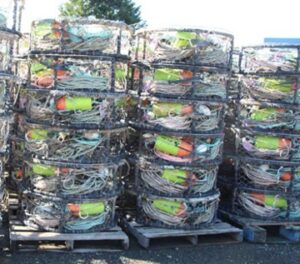 The California Department of Fish and Wildlife announced a delay in the season opener for California commercial Dungeness crab fishing off the Central and Southern Coast to protect whales from entanglement. The decision is based on a combination of excessive humpback whale entanglements in California Dungeness crab gear over the last three years and high numbers of recent humpback whale sightings off the central coast according to CDFW’s Risk Assessment and Mitigation Program criteria. Due to number of entanglements, NMFS is proposing to upgrade the California commercial Dungeness crab fishery to a Category I fishery,,, >>click to read<< 08:09
The California Department of Fish and Wildlife announced a delay in the season opener for California commercial Dungeness crab fishing off the Central and Southern Coast to protect whales from entanglement. The decision is based on a combination of excessive humpback whale entanglements in California Dungeness crab gear over the last three years and high numbers of recent humpback whale sightings off the central coast according to CDFW’s Risk Assessment and Mitigation Program criteria. Due to number of entanglements, NMFS is proposing to upgrade the California commercial Dungeness crab fishery to a Category I fishery,,, >>click to read<< 08:09
Commercial Fisherman Robert Maxwell “Bob” Salter of Santa Cruz, California has passed away
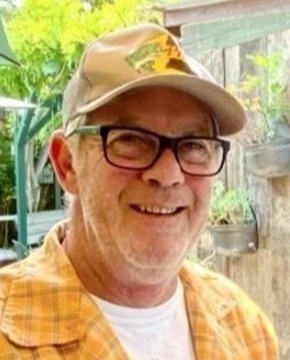 Family and friends are mourning the loss of beloved uncle and trusted friend, Bob Salter, who passed away at his Santa Cruz home with his loving family at his bedside. Bob was born in Santa Cruz to Frederick Salter and Fern Rianda Salter, he attended Delaveaga, B40, and Harbor High School. His father taught Bob the joy of fishing and love of the Sea. He grew up surfing and fishing with his brother Gary. His former boat was the Francis Jolene in the Santa Cruz Harbor. He fished for many seasons in Alaska and would visit family in Canada along the way. Bob had a lifelong career of commercial fishing and most recently fished out of Santa Cruz Harbor with Rick Ryan and his niece Bonnie Salter. >>click to read<< 10:27
Family and friends are mourning the loss of beloved uncle and trusted friend, Bob Salter, who passed away at his Santa Cruz home with his loving family at his bedside. Bob was born in Santa Cruz to Frederick Salter and Fern Rianda Salter, he attended Delaveaga, B40, and Harbor High School. His father taught Bob the joy of fishing and love of the Sea. He grew up surfing and fishing with his brother Gary. His former boat was the Francis Jolene in the Santa Cruz Harbor. He fished for many seasons in Alaska and would visit family in Canada along the way. Bob had a lifelong career of commercial fishing and most recently fished out of Santa Cruz Harbor with Rick Ryan and his niece Bonnie Salter. >>click to read<< 10:27
U.S. regulators will review car-tire chemical that kills salmon, upon request from West Coast tribes
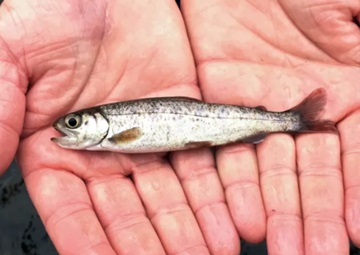 U.S. regulators say they will review the use of a chemical found in almost every tire after a petition from West Coast Native American tribes that want it banned because it kills salmon as they return from the ocean to their natal streams to spawn. The Yurok tribe in California and the Port Gamble S’Klallam and Puyallup tribes in Washington asked the Environmental Protection Agency to prohibit the rubber preservative 6PPD earlier this year, saying it kills fish — especially coho salmon — when rains wash it from roadways into rivers. Washington, Oregon, Vermont, Rhode Island and Connecticut also wrote the EPA, citing the chemical’s “unreasonable threat” to their waters and fisheries. >>click to read<< 10:14
U.S. regulators say they will review the use of a chemical found in almost every tire after a petition from West Coast Native American tribes that want it banned because it kills salmon as they return from the ocean to their natal streams to spawn. The Yurok tribe in California and the Port Gamble S’Klallam and Puyallup tribes in Washington asked the Environmental Protection Agency to prohibit the rubber preservative 6PPD earlier this year, saying it kills fish — especially coho salmon — when rains wash it from roadways into rivers. Washington, Oregon, Vermont, Rhode Island and Connecticut also wrote the EPA, citing the chemical’s “unreasonable threat” to their waters and fisheries. >>click to read<< 10:14






